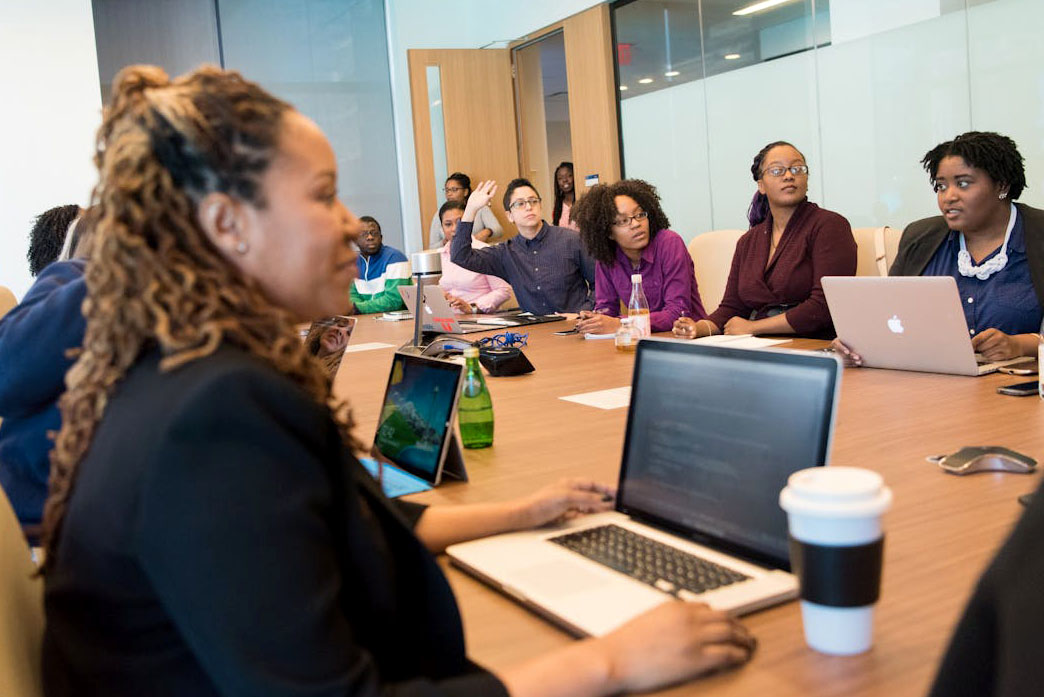Structured discussions and peer instruction encourage trainees to engage deeply with the material, fostering critical thinking and collaboration. Peer review, with clear guidelines, allows trainees to provide and receive constructive feedback, enhancing their analytical skills. It’s crucial for trainers not to re-teach content from the Individual Learning Space, but rather build on this foundation through the Group Space activities. The Flipped Learning 3.0 Framework supports the use of interactive and multimedia-based content to create a dynamic and learner-centered environment. Trainers should be flexible, supportive, and provide timely feedback to ensure that all trainees can benefit fully from the Group Space activities.
What is the primary focus of the Group Space in a flipped classroom?
The Group Space focuses on engaging trainees in activities that encourage higher-order thinking skills, such as analysis, evaluation, and creation, following their initial exposure to content in the Individual Space.
How should trainers prepare for the varying levels of understanding trainees bring to the Group Space?
Hidden content
Spoiler title
Trainers should anticipate that trainees will have varying levels of understanding and may need clarification and support. It’s essential to plan for questions, review key concepts, and address misconceptions without re-teaching the entire Individual Space content.
What are some key activities that can be utilized in the Group Space?
Key activities include practice sessions, peer tutoring, role playing, case studies, scenarios, simulations, structured discussions, peer instruction, and peer review.
How can practice sessions in the Group Space benefit trainees?
Practice sessions provide a supervised environment where trainees can apply skills, receive immediate feedback, and gain confidence in their abilities, particularly for hands-on tasks.
What is the role of peer tutoring in the Group Space?
Peer tutoring allows trainees to collaborate and learn from each other. Those who grasp concepts quickly can assist others, reinforcing their own knowledge while helping peers understand the material.
What should trainers consider when implementing role-playing exercises?
Trainers should provide clear instructions, sufficient background information, ensure quality feedback, and manage the emotional aspects of role play. It’s also important to set guidelines for peer feedback and not use role play solely for assessment without adequate practice.
How should case studies be structured for effective use in the Group Space?
Case studies should include a detailed description of the situation, relevant and irrelevant information, a clear outline of the problem, available resources, and specific objectives for discussion or analysis.
What are the benefits of using scenarios in the Group Space?
What are the benefits of using scenarios in the Group Space?
How can simulations be effectively integrated into Group Space activities?
Simulations provide a virtual representation of real-world scenarios, allowing trainees to explore and experiment in a safe environment. They can be introduced in both the Individual and Group Spaces, depending on the complexity.
What makes structured discussions a valuable tool in the Group Space?
Structured discussions encourage deep exploration of topics, guided by thoughtful questions that promote critical thinking and higher-order reasoning. Trainers should plan these questions carefully to stimulate meaningful dialogue.
How does peer instruction differ from other Group Space activities?
Peer instruction involves students engaging with the material both individually and in groups, fostering a deeper understanding through reflection and peer discussion. It includes individual accountability followed by collaborative analysis.
What are the best practices for implementing peer review in the Group Space?
Peer review should be structured with clear guidelines for providing constructive feedback. It empowers trainees to critically evaluate their peers’ work, enhancing their analytical skills and understanding.
How can trainers manage emotional responses during role playing?
Trainers should monitor the emotional state of trainees, provide an option to exit role play if needed, and ensure the exercise remains focused on learning objectives. Establishing a safe and respectful environment is crucial.
Why is it important not to re-teach Individual Space content during Group Space time?
Re-teaching can diminish the effectiveness of the flipped learning model. Instead, the Group Space should build on the foundational knowledge acquired in the Individual Space, focusing on application and more in-depth understanding.
How can trainers effectively utilize the Flipped Learning 3.0 Framework in the Group Space?
The Flipped Learning 3.0 Framework emphasizes interactive, multimedia-based content and active learning strategies. Trainers should use this framework to create engaging, learner-centered activities that enhance comprehension and retention.
What should trainers do if trainees struggle with Group Space activities?
Trainers should be flexible, provide additional support and resources, and consider revisiting challenging concepts. It’s important to maintain a supportive environment that encourages questions and exploration.
How can trainers ensure effective feedback during Group Space activities?
Effective feedback should be specific, constructive, and timely. Trainers can provide feedback directly and facilitate peer feedback with clear guidelines to ensure it is meaningful and helpful.

